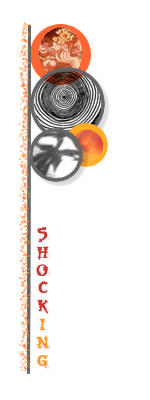| HOME | |||||
 |
Lear starts the disconnection between word and sense: "His decision to retain the name but to forsake the function of king, and at the same time to make his daughters his mothers, inverts the oedipal law of participation in the social order. Thus he engenders a dispensations of...empty words and primitive, even monstrous, hunger." (Stern 302). Lear moves from being an active author(ity) of the state to a passive child that asks to be fed by his daughters Regan and Goneril. The reversal from scripting to consuming is a crucial one that is highlighted by other characters in the play. Edmund is perhaps the most sinister and compelling example of the power to (re)define the sense of words. As a writer (of letters and names), Edmund attempts to redefine several powerful words (legitimate 1.2.16-21; unpossessing and bastard (2.1.65-77). Edmund literally scripts the voices of others (Edgar’s ‘hand’ is impersonated) in order to take control of language and sense. Glouchester, convinced by Edmund’s “inventions,” changes his own text: this father also claims he “would unstate myself” (1.2.98) and ultimately erases his own child by saying “I never got him” (2.1.79). Glouchester acts as a mirror of Lear—both are deceived by a belief in the truth or stability of external representation (spoken and written text). The degree to which ‘social order’ is transgressed and inverted leads to physical and psychological madness. While Joyce recognizes the fear that some have about the destabilization of absolute signifiers, he finds that: "The fear of losing the world is a fear of dismemberment; we close ourselves off into the zipped, conservative ground of the male gaze and colonial vista alike. Against such a fear of loss there is the countervailing play of surfaces, the joy of several worlds at once, passing and multiple"(94). |